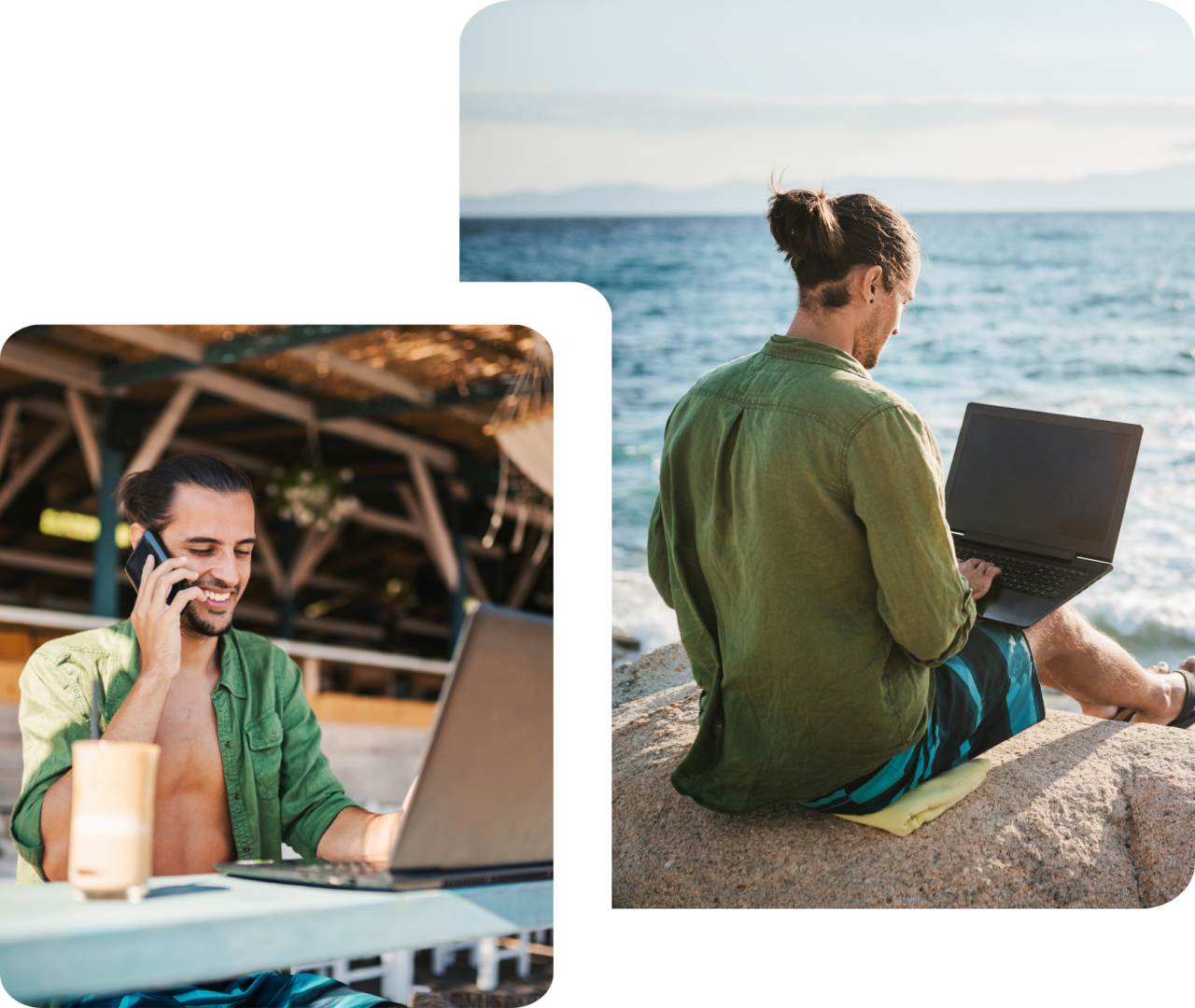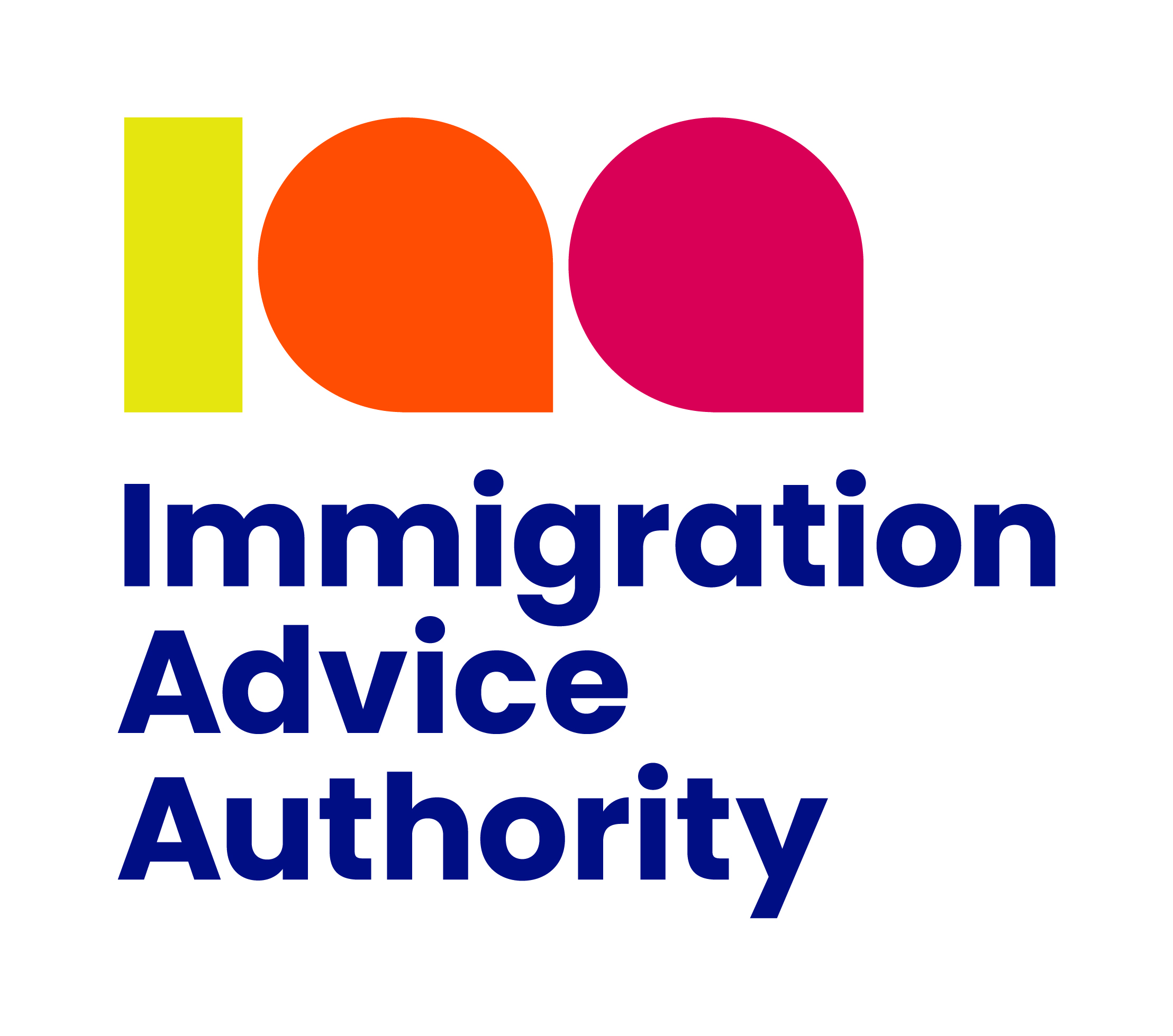
Italy Digital Nomad Visa
Expert guidance for Italy Digital Nomad visa
Happy Clients
Support
Years Experience
Success Rate
The Italy Digital Nomad Visa is a great option for freelancers who want to live and work in Italy. In this guide, we’ll cover who can apply, the requirements you need to meet, and how to get started with your application. Whether you're a freelancer, remote employee, or digital entrepreneur, here's what you need to know to make Italy your next work-from-home destination.
Do I need a visa to remote work in Italy?
Yes, if you're not an EU/EEA/Swiss citizen and you plan to live in Italy while working remotely, you will need a Digital Nomad / Remote Worker Visa.

What is Italy Digital Nomad visa?
The Italy Digital Nomad Visa is a type of visa designed for non-EU nationals who wish to live in Italy while working remotely. It allows individuals who work online, such as freelancers, consultants, or remote employees of foreign companies, to reside in Italy while maintaining their professional activities outside of the country.
This visa is ideal for digital nomads who want to experience Italy's culture, food, and lifestyle, all while continuing to work remotely for a company or clients anywhere in the world.

3 things you need to know about Portugal's Digital Nomad Visa before you apply
You need to earn at least €3,480 per month
To qualify for the visa, you must show that you earn €3,480 (four times Portugal’s minimum wage) each month. You’ll need to provide proof of this income for the past three months, such as bank statements or pay slips.
You must work remotely for clients or companies outside of Portugal
This visa is for people who work remotely for companies or clients outside Portugal. You'll need to provide a work contract, service agreements, or a letter from your employer to prove that your job is remote and foreign-based.
Lower tax rate for the first four years
If you get the visa, you will only pay 15% tax on your income for the first four years, which is much lower than Portugal’s normal 25% tax rate. After four years, the tax rate goes back to the standard 25%.
Who can apply for the Italy freelancer visa? Digital Nomad requirements explained
Professional qualifications
Applicants need to prove they are highly skilled in their profession. The visa is for people who:
Education: Have a post-secondary degree (like a bachelor’s, master’s, or doctorate) that is recognized by the Italian government. Alternatively, applicants can provide a Declaration of Value (Dichiarazione di Valore) for their foreign qualifications.
Experience: Have at least three years of professional experience or training in their field. For certain jobs in the Information and Communication Technology (ICT) sector, the experience requirement is reduced to three years in the past seven years.
Employment or freelance work proof
For digital nomads: Freelancers must show proof of their professional activity, such as tax returns, invoices, or membership in professional associations.
For remote workers: Employees must submit proof of their employment, including a valid work contract, pay slips, or tax returns.
Income requirement
Applicants must show that they earn enough to support themselves in Italy. In 2025, the minimum income requirement is three times the amount needed to pay healthcare taxes in Italy, which is around 24,789 euros per year. This income must come from the remote work being performed in Italy, not from passive sources like rental income or social security benefits.
Health insurance
You need to show proof of travel health insurance that covers medical expenses, hospitalization, and repatriation if necessary. The insurance must cover at least 30,000 euros (or $50,000 USD). You can’t use just a regular insurance card; it must be a formal certificate from your insurance provider.
Accommodation in Italy
You must have a place to live in Italy for the duration of your stay. This can be a lease, rental contract, or property deed. The lease must be in your name, and it must cover the entire period you’ll be in Italy. If your lease isn’t officially registered with the Italian Tax Authority, your visa application will be rejected.
Health insurance
Proof of valid health insurance that covers you during your stay in Portugal. Some countries have agreements with Portugal that may waive this requirement (e.g., Brazil, UK).
Other documents
You will also need:
A valid passport with at least two blank pages.
Proof of residence in your current country (such as a utility bill or driver’s license).
A completed visa application form.
A recent passport-sized photo that meets ICAO standards.
How to apply for the Italy Digital Nomad (Remote Worker) visa
To apply for the Italy remote worker visa, follow these steps:
Prepare your documents: Gather all required documents, such as your passport, proof of income, proof of employment or freelance work, and health insurance. Double-check that everything is in order.
Schedule an appointment: Go to the Italian consulate website for your region and book an appointment to submit your visa application. Be sure to check if there are any specific requirements for your country of residence.
Submit your application: On the day of your appointment, submit your application and all supporting documents. Be ready to pay the visa application fee, which can vary based on the type of visa and the length of stay.
Wait for processing: After you submit your application, the consulate will review it. This process can take several weeks, so make sure to apply well in advance of your planned travel date. If any additional documents are needed, the consulate will let you know.
Receive your visa: If your application is approved, you’ll be issued a visa. With this visa, you can enter Italy and live there while working remotely.
Apply for the Permesso di Soggiorno (Residence Permit): After you arrive in Italy, you must apply for a Permesso di Soggiorno (residence permit) within 8 working days. This permit replaces your visa and allows you to stay in Italy for a longer period.
If you hold a Digital Nomad or Remote Worker Visa, you can sponsor your spouse and children under 18 for a family visa. However, you cannot sponsor parents or children over 18. The sponsorship process must be done through the Questura (local police office) in Italy once you’ve received your residency permit.
What is the minimum income for the Italian digital nomad visa?
The minimum income requirement for the Italian Digital Nomad Visa is at least €24,789 per year (as of 2025). This amount is three times the minimum income required to cover healthcare taxes in Italy.
The income must come from your remote work or freelance activities, not passive income like rental income or investments. You’ll need to provide proof of your income through documents such as pay stubs, bank statements, or tax returns.
Do digital nomads pay tax in Italy?
Yes, digital nomads may need to pay taxes in Italy if they become tax residents, which typically happens if they stay in the country for more than 183 days in a year. As a tax resident, you'll be subject to Italy’s progressive income tax rates, ranging from 23% to 43%, on your worldwide income. However, if you work remotely for a foreign company or clients, Italy has double taxation agreements with many countries that can help prevent paying taxes in both your home country and Italy. It’s important to consult a tax professional to ensure you comply with local tax laws and avoid double taxation.
Why choose us?
Our visa service is designed to provide a seamless, secure, and efficient experience for all travelers. Whether you're applying for the first time or need guidance along the way, we've built a system that prioritizes speed, security, simplicity, and support.
Apply Now
Fast processing
Get your visa application processed quickly with minimal wait times.

Secure and reliable
Your personal data is fully protected with top-tier security measures.

Customer support
Our team is available anytime to assist you with your visa application.

Simple and easy to use
Easily complete your visa application with our user-friendly platform.

Trusted reviews from our customers
Professional and reliable service. I received my visa quickly, thank you!
The visa process was really fast and easy. I definitely recommend it.
Very good service, everything went as expected. Highly recommend!
Italy Digital Nomad / Remote worker visa - Apply Now!
Complete the form to start your application process. Our expert immigration team will review your details and contact you promptly to discuss the next steps.
Fast Response
Usually within 24 hours
757,600+
Visa Approval
Risk Free
With Denial Protection
17
Years of Experience
500K+
Visa Consultations
Get In Touch
MESSAGE US
WhatsAppCHAT WITH US


